
Subscribe
eNewsletter

Ready to get certified?
Free CDCES Coach App
Download
Free Med Pocket Cards

eNewsletter

Free CDCES Coach App
Free Med Pocket Cards
Pharmacists have a powerful role in diabetes care, and earning advanced certification like the CDCES or BC-ADM can deepen clinical impact and confidence.
Tyler Whitaker’s, Pharm.D., BC-ADM, CDCES, story below shows how certification transformed his practice and expanded the way he supports people living with diabetes.
My original job description wasn’t directly related to diabetes management.

Tyler Whitaker,
Pharm. D., BC-ADM, CDCES
“I started in outpatient case management, doing medication review, education, and cost savings as a single-touch pharmacist while nurses handled the rest. But as our team became more proactive in diabetes care and CGM use increased, my role naturally expanded from being the ‘drug guy’ to helping with technology, interpretation, and ongoing support for patients.
When other team members left, and the telephonic diabetes management program risked falling apart, I decided, best I could, to wear all the hats I could rather than let it collapse. Nearly two years later, it’s just myself and a consistent health coach managing adults in our health system who choose to engage with us. We’ve had great outcomes and so much attention that the health system is actively trying to duplicate the model and ‘have a Tyler in every office.’
I did it because I wanted to show my value. Pharmacists are often told we need to ‘prove’ our worth since we don’t typically generate revenue, and being an expert in a specialty adds another layer. I’m actively putting in the work to give more than just drug facts. I want to help the whole disease state and the person at the center—not just manage medications and stop there. It’s comprehensive care, and certifications like CDCES and BC-ADM allow me to be comprehensive on multiple fronts.”
-Tyler Whitaker, Pharm.D., BC-ADM, CDCES
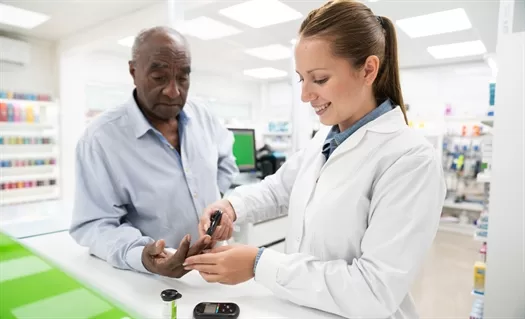
As a pharmacist, your role in diabetes management has never been more essential — or more influential.
You interpret complex medication regimens. You support technology integration. You build trust with patients navigating lifelong disease management.
Now is the time to formalize that expertise!
Earning advanced diabetes certification isn’t simply about credentials — it’s about expanding your clinical authority, strengthening your voice within interdisciplinary teams, and positioning yourself as a leader in evidence-based care.
Welcome to the next step in your professional evolution!
Advanced credentials such as CDCES (Certified Diabetes Care and Education Specialist) and BC-ADM (Board Certified–Advanced Diabetes Management) signals in-depth expertise, clinical excellence, and commitment to comprehensive care.
For pharmacists, certification can:
Strengthen your leadership role on interdisciplinary care teams
Expand your scope in technology, interpretation, and patient-centered decision-making
Increase professional credibility with providers, administrators, and patients
Elevate confidence in complex diabetes management
Differentiate you in competitive clinical and health-system environments
Most importantly, certification equips you to care for the whole person — not just the prescription.


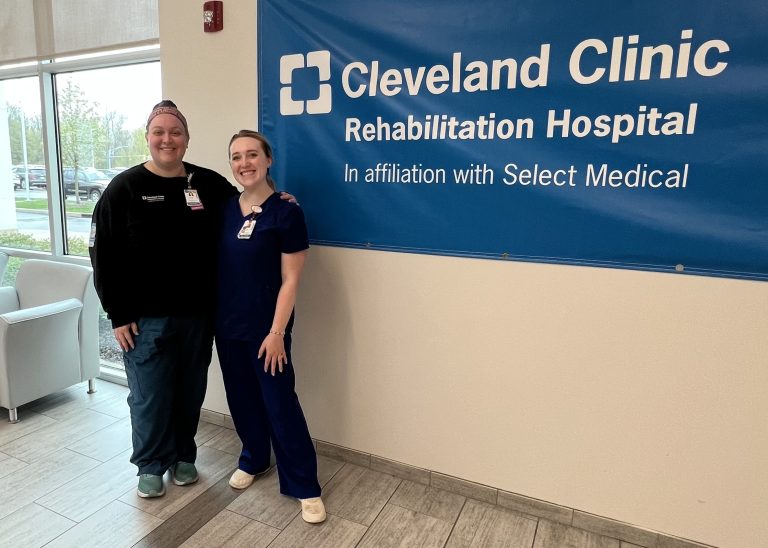




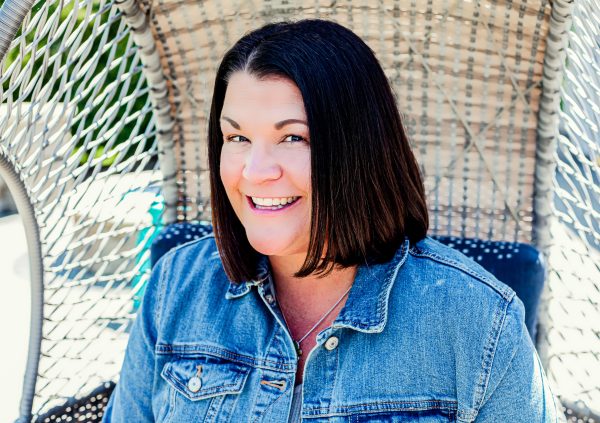
With Our Upcoming Webinars & CE Courses
Join this FREE, pharmacist-focused webinar Co-led by Dr. Diana Isaacs, PharmD, BCPS, BC-ADM, BCACP, CDCES, FADCES, FCCP, Endocrinology Clinical Pharmacy Specialist and Coach Beverly Thomassian, RN, MPH, CDCES, BC-ADM.

Pharmacists are essential leaders in diabetes care, and advanced certification can expand your clinical impact, professional confidence, and career opportunities.

Dr. Diana Isaacs,
PharmD, BCPS, BC-ADM, BCACP, CDCES, FADCES, FCCP, Endocrinology Clinical Pharmacy Specialist
“Dr. Diana Isaacs, PharmD, BCPS, BC-ADM, BCACP, CDCES, FADCES, FCCP is an Endocrinology Clinical Pharmacy Specialist. She serves as the Co-Director of Endocrine Disorders in Pregnancy and the Director of Education and Training in Diabetes Technology at the Cleveland Clinic Endocrinology and Metabolism Institute.
Dr. Isaacs holds board certifications in pharmacotherapy, ambulatory care, and advanced diabetes management. She served on the American Diabetes Association (ADA) Professional Practice Committee from 2020-2023, the committee that updates the ADA Standards of Care. She also was the ADA Communications Director for the Pregnancy and Reproductive Health Interest Group from 2018-2022. She has been actively involved with the American Association of Clinical Endocrinology (AACE) and currently serves on the leadership of the Diabetes Disease State Network.”
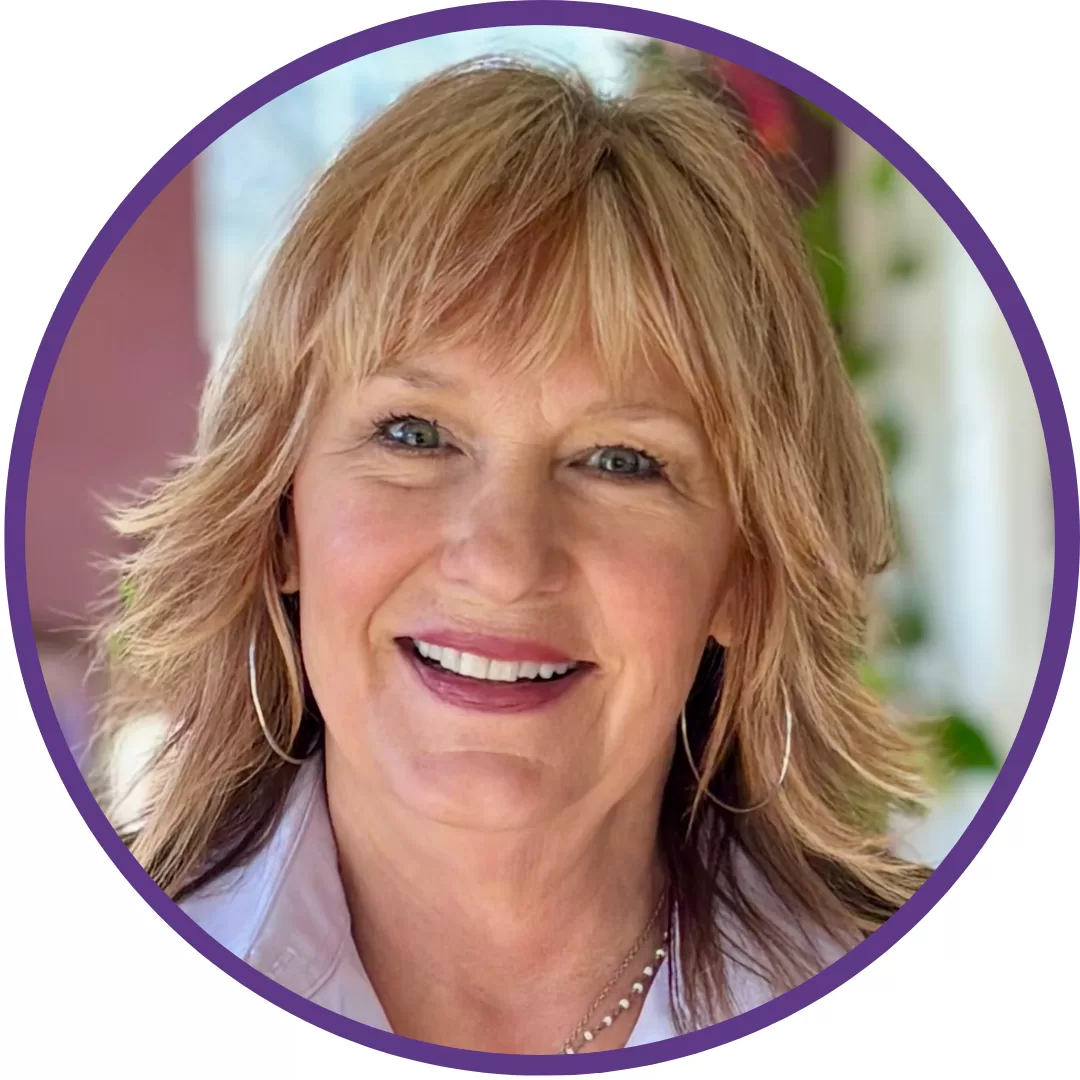
Coach Beverly Thomassian,
RN, MPH, BC-ADM, CDCES
Coach Beverly is a nationally recognized diabetes nurse specialist, mentor, and author whose work bridges science, storytelling, and soul. With decades of experience, she is a passionate advocate for person-centered, inclusive care.
As founder of Diabetes Education Services™, Beverly has trained thousands of clinicians to achieve diabetes certification while championing a compassionate approach to healthcare.
As a diabetes coach, she promotes excellence in care through her live courses and webinar presentations. As a Diabetes Nurse Specialist who is Board Certified in Advanced Diabetes Management, Beverly has a twenty-year history of being an innovator, leader, and mentor.
Basic & e-Deluxe CDCES Boot Camp Bundle includes:
Our CDCES Boot Camp Online Prep Bundle is a comprehensive, high-impact program built specifically for healthcare professionals preparing for the Certified Diabetes Care and Education Specialist (CDCES) exam.
✔ Earn CE/CPE credit through AMA PRA Category 1 Credits™, ACPE, ANCC, and CDR. For more information on accreditation, visit the registration page on our Online Store and click the “Accreditation” tab.
✔ Learn at your pace with expert-led, exam-focused content
✔ Everything you need—organized, practical, and in one place
✔ Perfect for self-directed learners who want complete, person-centered content for clinical practice and exam prep.
✔ Build knowledge, sharpen test-taking skills, and prepare with confidence—on your schedule.
Focused. Flexible. Proven.
Our comprehensive BC-ADM Online Study Programs are specifically designed for healthcare professionals who are studying for the Board Certified in Advanced Diabetes Management (BC-ADM) exam.
✔ Earn CE/CPE credit through AMA PRA Category 1 Credits™, ACPE, ANCC, and CDR. For more information on accreditation, visit the registration page on our Online Store and click the “Accreditation” tab.
✔ Learn at your pace with expert-led, exam-focused content
✔ Everything you need—organized, practical, and in one place
✔ Perfect for self-directed learners who want complete, person-centered content for clinical practice and exam prep.
✔ Build knowledge, sharpen test-taking skills, and prepare with confidence—on your schedule.
Focused. Flexible. Proven.
Basic & e-Deluxe BC-ADM Boot Camp Bundle include:
Last month, the U.S. Food and Drug Administration (FDA) approved Ozempic (semaglutide) to reduce the risk of worsening kidney disease, kidney failure, and cardiovascular-related death in adults with type 2 diabetes and chronic kidney disease (CKD). This decision was based on results from the FLOW phase 3 clinical trial.
This expanded approval represents a major advancement for people managing both conditions, offering an additional tool to protect kidney function and heart health.
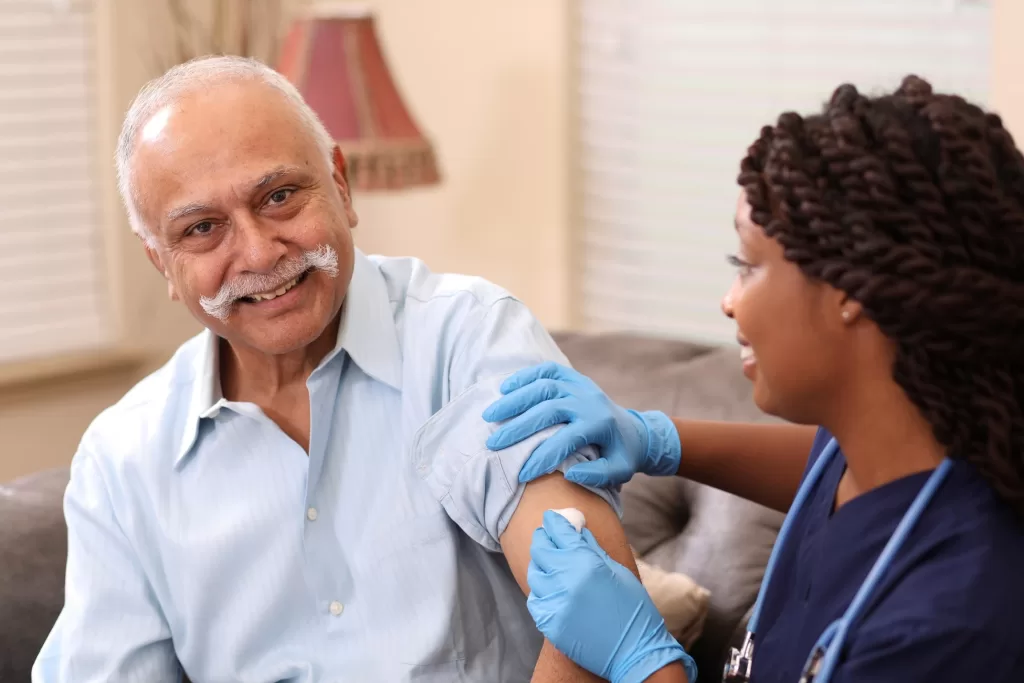 The Link Between Chronic Kidney Disease and Diabetes
The Link Between Chronic Kidney Disease and DiabetesChronic kidney disease (CKD) is a serious and prevalent condition affecting about 30% of people living with diabetes. CKD can progress over time, potentially leading to kidney failure that requires dialysis or a transplant. Additionally, individuals with both CKD and diabetes face an elevated risk of cardiovascular complications, including heart attacks and strokes.
Semaglutide (Ozempic) is a commonly used GLP-1, that not only lowers blood glucose levels and body weight, it has also been proven to reduce the risk of major cardiovascular events in adults with type 2 diabetes.
Now, with this latest FDA approval, semaglutide is also recognized for its ability to slow kidney disease progression and lower the risk of kidney failure and cardiovascular-related deaths in people with type 2 diabetes and CKD.
The FDA’s decision was based on the FLOW phase 3b kidney outcomes trial, which involved 3,533 adults with type 2 diabetes and CKD. The study compared the effects of once-weekly semaglutide 1.0 mg injections versus a placebo. Findings revealed a 24% reduction in the risk of kidney disease worsening, kidney failure, and cardiovascular death in participants receiving semaglutide. Due to the overwhelming efficacy, the trial was stopped early after meeting its pre-specified criteria.
Dr. Richard E. Pratley, Medical Director at the AdventHealth Diabetes Institute in Orlando, FL, and Co-Chair of the FLOW Trial, emphasized the significance of this approval:
“Managing type 2 diabetes is already challenging, and chronic kidney disease adds another layer of complexity. In my practice, I see many patients with serious kidney complications—some requiring dialysis. The FDA’s decision provides new hope and an additional treatment option that can make a meaningful difference in protecting kidney function and cardiovascular health.”
For individuals living with both type 2 diabetes and CKD, semaglutide offers a new treatment option to help preserve kidney function and lower the risk of life-threatening cardiovascular events. Effectively managing both conditions can improve long-term health outcomes and quality of life.
If you are working with individuals with type 2 diabetes and CKD, initiating semaglutide early in the treatment plan can not only protect kidney health but also decrease the risk of worsening kidney function, further improving outcomes.
The FDA’s expanded approval of Ozempic marks a crucial milestone for people with type 2 diabetes and CKD. With strong clinical trial evidence supporting its effectiveness, this treatment provides renewed hope for those at risk of worsening kidney disease and cardiovascular complications.
See our Medication PocketCards for more information.
NEJM Article: Effects of Semaglutide on Chronic Kidney Disease in Patients with Type 2 Diabetes

Gain fresh insights, practical tools, and a deeper understanding of the latest in person-centered diabetes care. Our expert team brings the ADA Standards of Care to life—covering medications, behavior change, technology, and more! If you’re preparing for the CDCES or BC-ADM exam, this conference—paired with free bonus courses—serves as the ideal study companion!
With interactive co-teaching, we keep sessions engaging, relevant, and fun. Let’s learn and grow together!

Our expert team transforms complex diabetes science into clear, practical insights—keeping it real, engaging, and fun! The faculty includes:
For last week’s practice question, we quizzed participants on what defines overbasalization according to 2025 ADA Standards?. 52% of respondents chose the best answer. We want to clarify and share this important information, so you can pass it on to people living with diabetes and your colleagues, plus prepare for exam success!
Before we start though, if you don’t want any spoilers and haven’t tried the question yet, you can answer it below: Answer Question

Question:
What defines overbasalization according to 2025 ADA Standards?
According to the new 2025 ADA Standards of Care, which of the following most accurately reflects overbasalization?
Answer Choices:
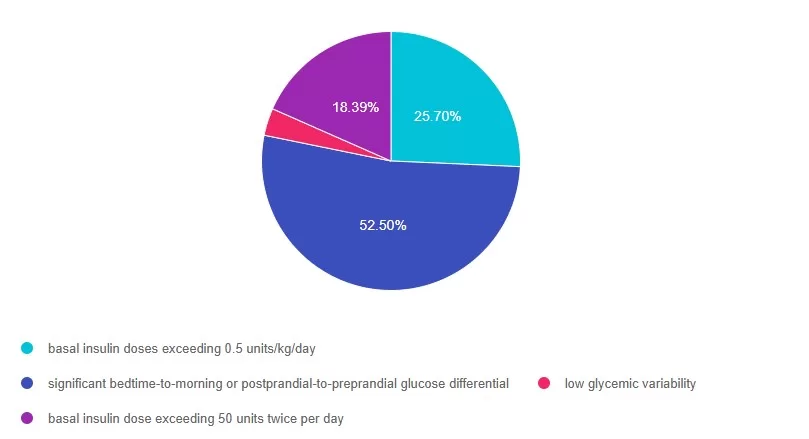
Answer 1 is incorrect. 25% chose this answer: basal insulin doses exceeding 0.5 units/kg/day. This year, the ADA Recommendation was revised to remove consideration of basal insulin doses exceeding 0.5 units/kg/day as evidence of overbasalization. Instead, signs of overbasalization including significant bedtime-to-morning or postprandial-to-preprandial glucose differential, occurrences of hypoglycemia (aware or unaware), and high glycemic variability should be used.
Answer 2 is correct. 52% of you chose this answer: significant bedtime-to-morning or postprandial-to-preprandial glucose differential. GREAT JOB! In the 2025 ADA Standards (9), they define overbasalization as significant bedtime-to-morning or postprandial-to-preprandial glucose differential, occurrences of hypoglycemia (aware or unaware), and high glycemic variability.
Answer 3 is incorrect. About 18% of respondents chose this: low glycemic variability, This is a juicy and tempting answer. However, high glycemic variability (lots of ups and downs) is more closely associated with hypoglycemia.
Finally, Answer 4 is incorrect 3% chose this answer: basal insulin dose exceeding 50 units twice per day. Overbasalization is not defined by the amount of insulin used, but by the glucose response including significant bedtime-to-morning or postprandial-to-preprandial glucose differential, occurrences of hypoglycemia (aware or unaware), and high glycemic variability
We hope you appreciate this week’s rationale! Thank you so much for taking the time to answer our Question of the Week and participate in this fun learning activity!
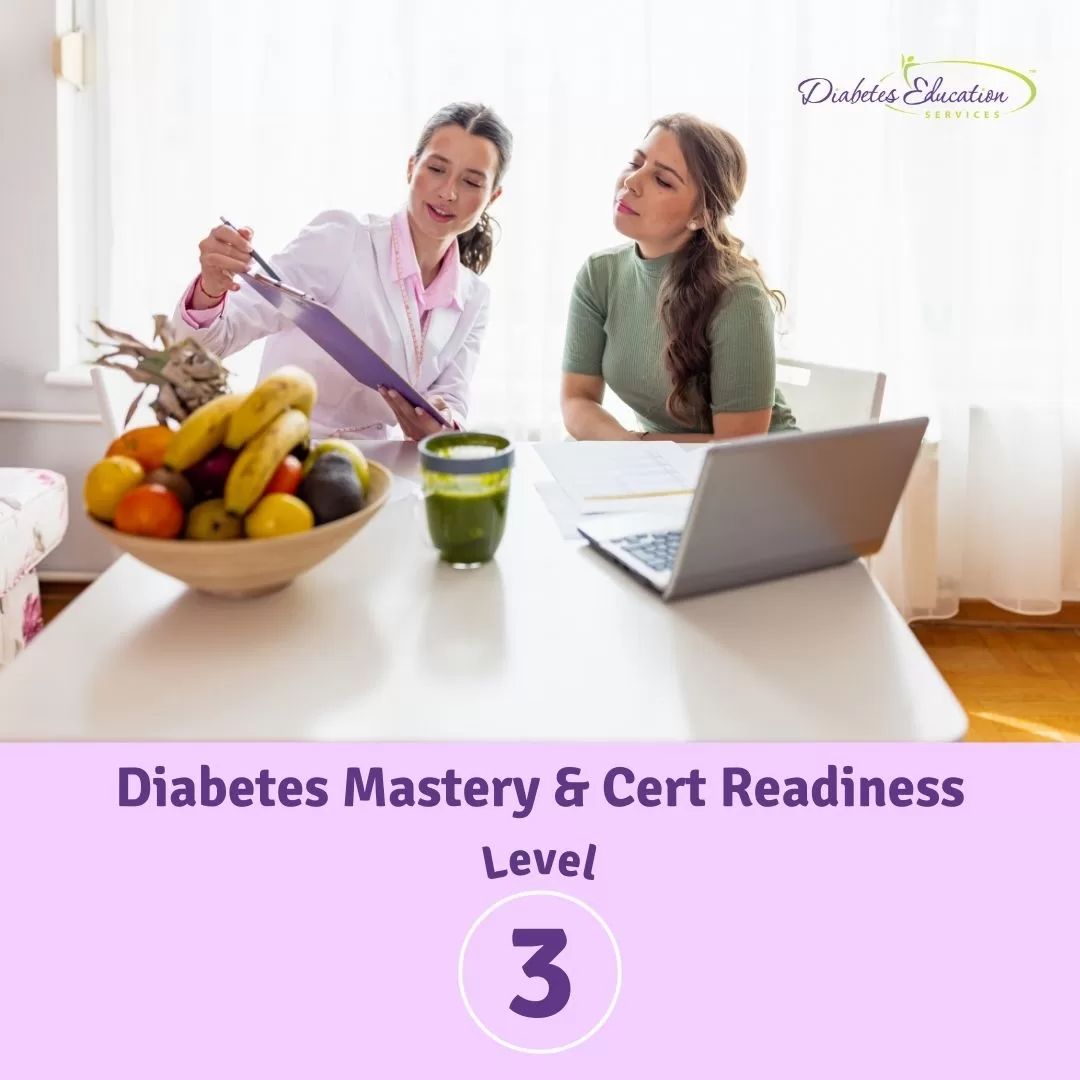
Ready for your certification exams? Our Level 3 course series is the final step in your exam prep, complementing our Level 1, 2, or 4 bundles. Designed for healthcare professionals preparing for diabetes certification exams in 3-6 months, this master-level series covers key topics like pharmacology, technology, MNT, and person-centered care, all based on the latest ADA Standards of Care.
Each course includes a video, podcast, practice test, and additional resources—available immediately for one full year. Boost your knowledge and confidence to succeed in your certification!
 Dignity Health Mercy Medical Center Redding Steps Up with a Diabetes Mentorship Program!
Dignity Health Mercy Medical Center Redding Steps Up with a Diabetes Mentorship Program!We are thrilled to announce the launch of the Diabetes Mentorship Program at Mercy Medical Center in Redding, designed to support and guide the next generation of diabetes educators. This unique opportunity is tailored for eight motivated mentees who are eager to gain hands-on experience in diabetes care, all while learning from Janelle Revnak, MS, RDN, CDCES, an experienced diabetes care and education specialist, with 10 years practicing as an RDN and 5 years as a CDCES. Janelle is passionate about sharing her expertise with the next generation of diabetes professionals. Her extensive background in both outpatient and inpatient diabetes education will ensure that mentees receive comprehensive training and valuable insights into the world of diabetes care.
Over the course of the program, mentees will attend monthly educational sessions led by Janelle, coupled with didactic learning sessions and job shadowing, providing an immersive experience in the inpatient setting. As part of our mentoring partnership, the trainees will also have access to our Diabetes Boot Camp series. Janelle decided to start this program after realizing that the need for diabetes education in her rural community was larger than what one person could realistically deliver. She reached out and identified colleagues in her hospital who were interested upping their diabetes knowledge and improving care.
“I alone cannot change the world, but I can cast a stone across the waters to create many ripples.” – Mother Teresa
As the number of people living with diabetes continues to rise, the demand for skilled diabetes educators is paramount. According to the latest CDC Data, the prevalence of diabetes has increased dramatically over the past decade, with more than 37 million Americans now living with diabetes—an increase of nearly 30% over the past 10 years. This growing population needs more than just medical care; they require specialized education and support to effectively manage their condition. Current diabetes care and education specialists (DCES) are uniquely positioned to assist in equipping future professionals with the knowledge and experience needed to meet the needs of this expanding patient population.
The mentorship program will be held once a month and is designed to create a balanced approach to learning. Mentees will dive deep into didactic topics, such as advanced diabetes management, behavior change strategies, and innovative approaches to diabetes care. In addition to classroom-style learning, they will have the opportunity to job-shadow Janelle, gaining firsthand experience in how diabetes education is applied in real-world inpatient clinical settings. This combination of theory and practice ensures mentees are well-equipped to make an impact in the field.
Participants will also have the chance to engage with a wide range of diabetes-related cases during their job shadowing. From inpatient diabetes clinical management to individualized patient education, they will develop a well-rounded understanding of the crucial role diabetes educators play in improving care outcomes while helping individuals feel emotionally supported through this challenging disease. This hands-on approach allows for active learning and real-time feedback, which is vital for shaping confident and competent DCES.
The mentorship program is not just about learning—it’s about making connections, fostering growth and building a community of passionate diabetes care professionals. We are excited to offer this incredible opportunity to those who are committed to advancing their skills and knowledge in diabetes education. Together, we can make a real difference in the lives of those living with diabetes. In the spirit of Mother Teresa, it is not one person alone that can impact the growing population affected by diabetes, but working together, we can achieve meaningful change.
If you have questions, you can reach Janelle at [email protected].
As part of our Bridge Program, Coach Beverly wants to support YOUR efforts to mentor a new generation of Diabetes Care and Education Specialists. If you are a mentor, we are offering significant discounts off of our Diabetes Boot Camp or Virtual 3 Day Program for groups of mentees who are practicing in underserved regions of our country. Please email us for more information at [email protected]
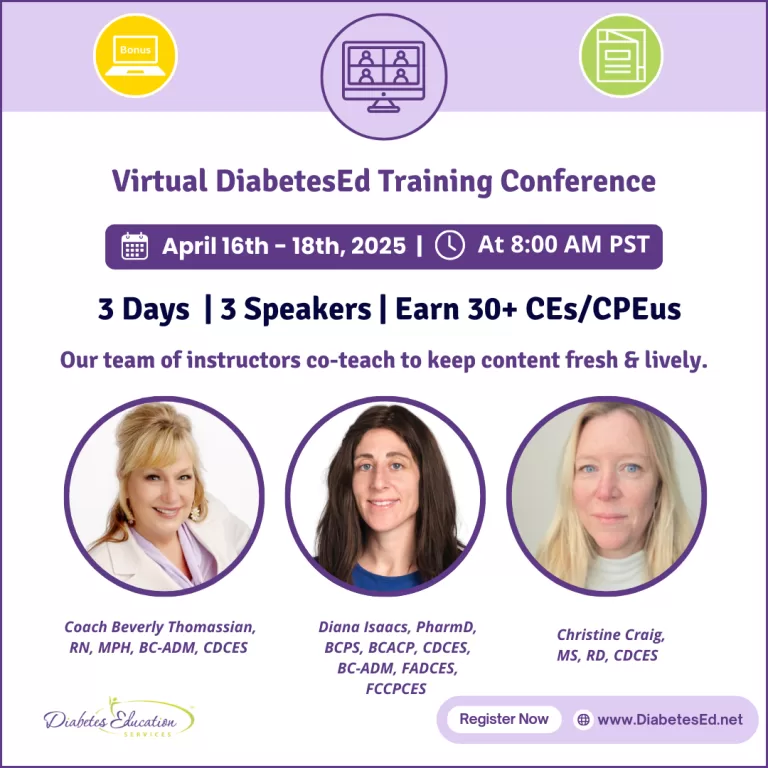
🎉 Join Our Virtual DiabetesEd Training Conference! 🎉
🗓️ Date:April 16th-18th, 2025
⏰ Time: 8:00am PST
Get ready for 2.5 days of engaging sessions on the latest in person-centered diabetes care, covering ADA Standards, medications, technology, and more! Learn from Diana Isaacs, Coach Beverly, and other experts.
💡 Can’t attend live? Access recordings, podcasts, and resources for 1 full year.
🎉 Special Offer: Register 3 or more and save $50 each!
Register now and take your diabetes expertise to the next level!
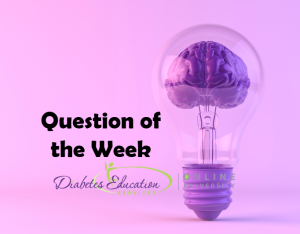
According to ADA 2025 Standards, more intensive preventive approaches should be considered in individuals who are at particularly high risk of progression to diabetes, including individuals with BMI ≥35 kg/m2 who:
This is our most popular course of the year, offering the perfect opportunity to immerse yourself in the essential content featured in this comprehensive 300-page clinical guidebook.
“As always, Bev delivers comprehensive human-centered material to make me a better educator and leader.“- DiabetesEd Student
We hope to see you there!
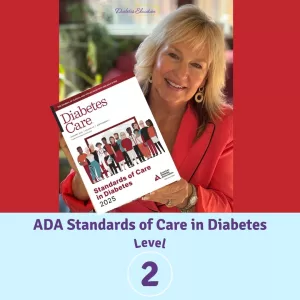
For last week’s practice question, we quizzed participants on ADA Standards identify another 1st line med to treat kidney disease. 63.39% of respondents chose the best answer. We want to clarify and share this important information, so you can pass it on to people living with diabetes and your colleagues, plus prepare for exam success!
Before we start though, if you don’t want any spoilers and haven’t tried the question yet, you can answer it below: Answer Question

Question:
According to the ADA 2025 Standards, new clinical trials suggest that another diabetes medication (besides SGLT-2i) can be used as a first line agent to treat chronic kidney disease.
Which of the folowing diabetes meds is effective as a first-line agent for people with CKD?
Answer Choices:
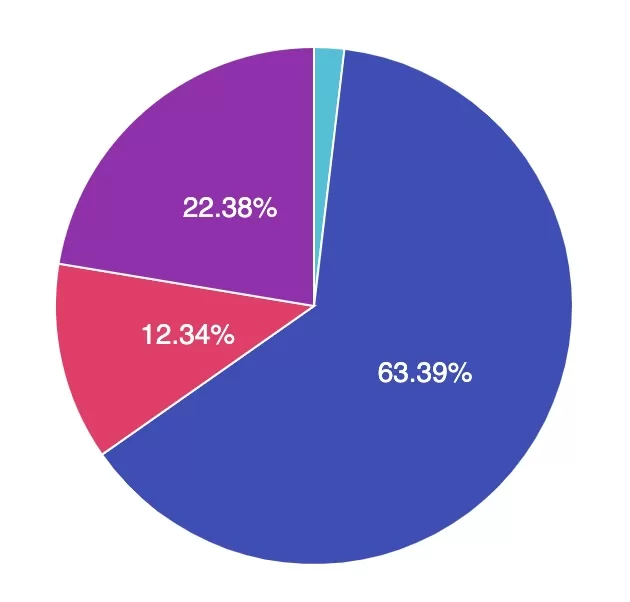
Answer 1 is incorrect. 2% chose the answer, Afrezza inhaled insulin. Insulin helps lower blood glucose levels, which contributes to improved overall vessel health. However, there are currently no specific studies supporting the use of Afrezza as a first-line treatment strategy for managing chronic kidney disease.
Answer 2 is correct. 63.39% of you chose this answer the best answer, semaglutide (Ozempic). GREAT JOB! According to the 2025 ADA Standards, “a recent clinical trial suggests that the GLP-1 RA semaglutide has a beneficial effect on CVD, mortality, and kidney outcomes among people with Chronic Kidney Disease (CKD), leading to the recommendation that semaglutide can be used as another first-line agent for people with CKD.”
Answer 3 is incorrect. About 12.34% of respondents chose Amylin (Pramlintide). Amylin is an injected hormone mimetic that helps lower blood glucose levels. However, there are currently no specific studies supporting the use of Amylin as a first-line treatment strategy for managing chronic kidney disease.
Finally, Answer 4 is incorrect. 22.38% chose this answer, Sitagliptin (Januvia). Sitagliptin helps lower A1C levels by 0.5-0.7%. However, there are currently no specific studies supporting the use of sitagliptin as a first-line treatment strategy for managing chronic kidney disease.
We hope you appreciate this week’s rationale! Thank you so much for taking the time to answer our Question of the Week and participate in this fun learning activity!
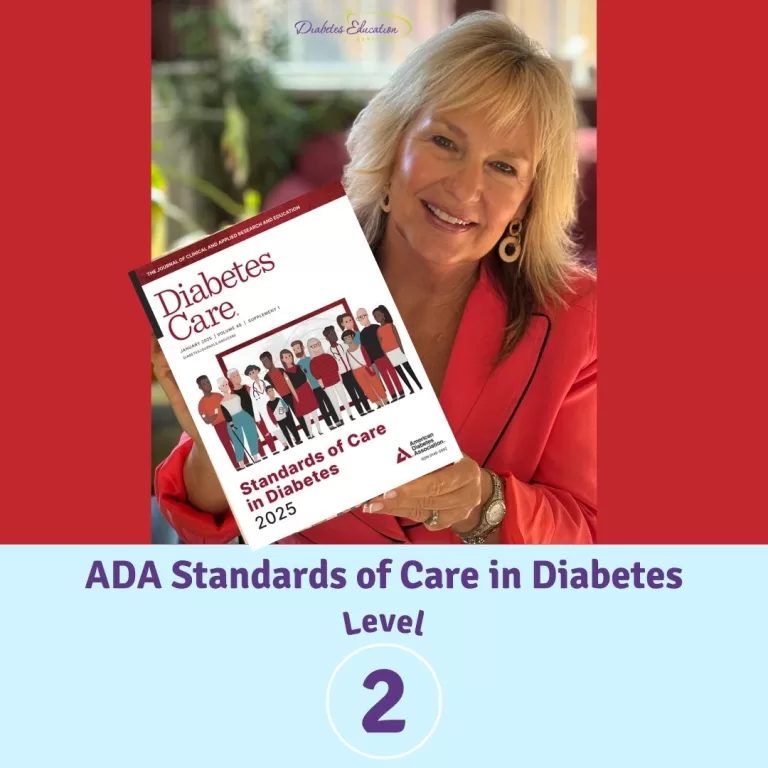
This is our most popular course of the year, offering the perfect opportunity to immerse yourself in the essential content featured in this comprehensive 300-page clinical guidebook.
“As always, Bev delivers comprehensive human-centered material to make me a better educator and leader.“- DiabetesEd Student
We hope to see you there!

According to the new 2025 ADA Standards of Care, which of the following most accurately reflects overbasalization?
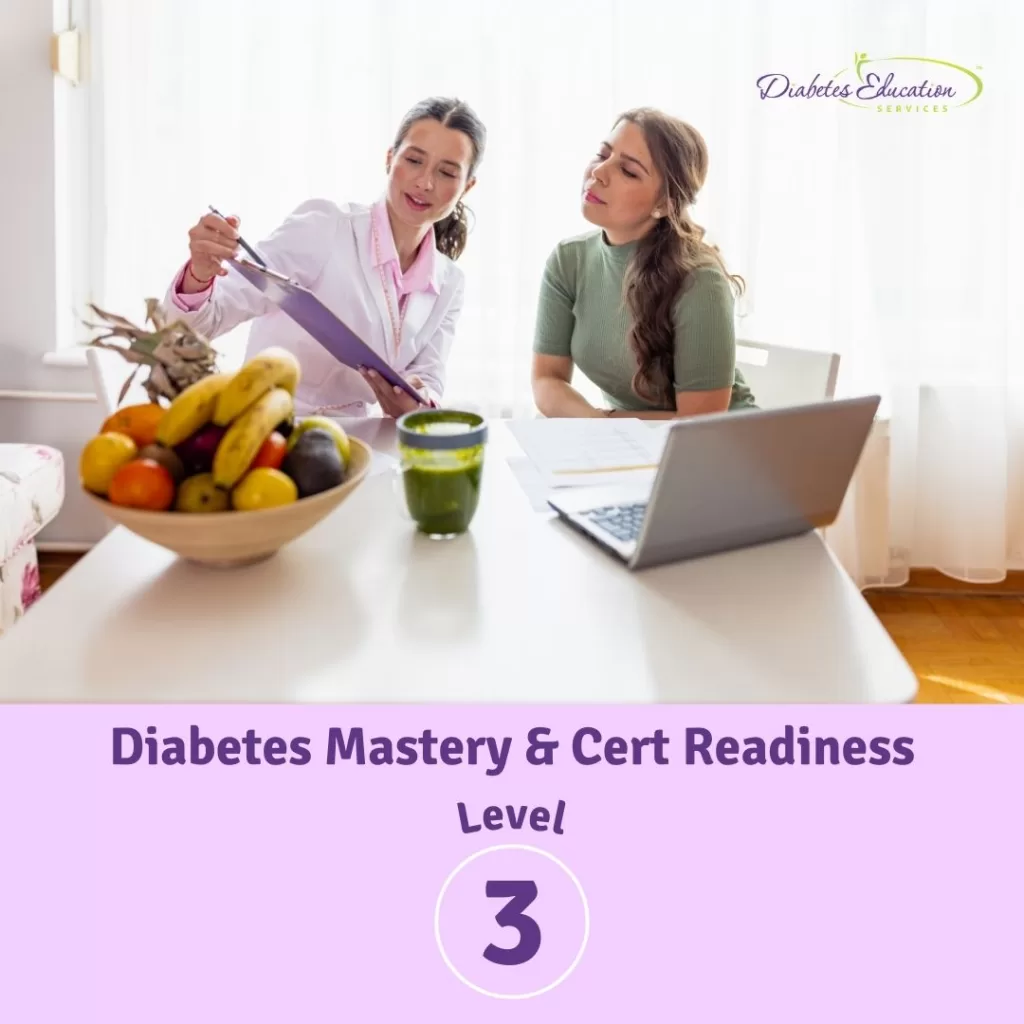
Ready to ace your diabetes certification exams? Our Level 3 courses are the ultimate step in your exam prep journey, designed to fill in any knowledge gaps and solidify your expertise. Whether you’re preparing for the CDCES or BC-ADM exams, these master-level courses offer comprehensive, evidence-based content grounded in the latest ADA Standards of Care in Diabetes.
Dive into critical areas like pharmacology, technology, lifestyle management, and Medical Nutrition Therapy, all while building the practical and strategic skills you need to deliver top-notch care. With video presentations, podcasts, practice tests, and engaging case studies, you’ll gain the confidence and competence to navigate complex diabetes scenarios. Plus, enjoy access to your course materials for a full year! Sign up now and set yourself up for certification success!
For last week’s practice question, we quizzed participants on Diabetes & Malnutrition Risk 74.26% of respondents chose the best answer. We want to clarify and share this important information, so you can pass it on to people living with diabetes and your colleagues, plus prepare for exam success!
Before we start though, if you don’t want any spoilers and haven’t tried the question yet, you can answer it below: Answer Question

Question: The 2025 ADA Standards of Care have added recommendations for malnutrition screening.
According to these updated standards, who could be at risk for malnutrition?
Answer Choices:
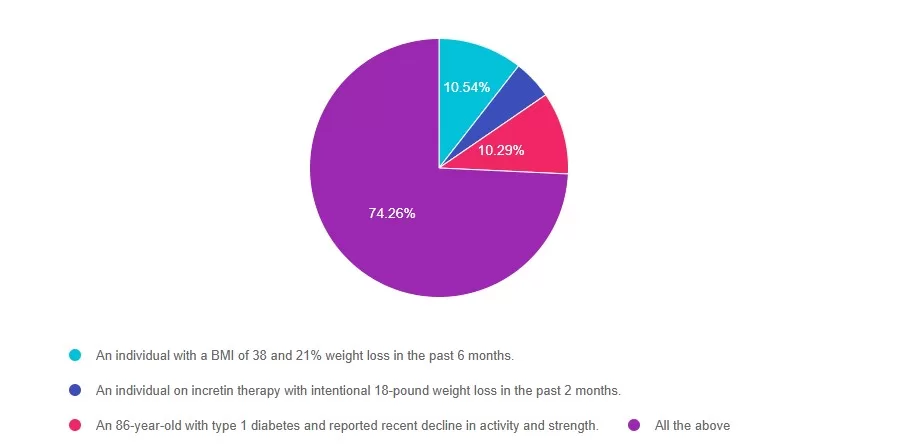
Answer 1 is incorrect. 10.54% chose this answer: “An individual with a BMI of 38 and 21% weight loss in the past 6 months”. Although Answer A is true, it is not the best answer. Malnutrition risk is not solely based on BMI. According to the 2025 ADA Standards of Care, individuals with diabetes experiencing significant weight loss, greater than 20%, may be at risk for malnutrition regardless of starting BMI.
Answer 2 is incorrect. 4.90% of you chose this answer: “An individual on incretin therapy with intentional 18-pound weight loss in the past 2 months.” This answer is also true, but there is a better answer. Even though the weight loss was intentional on incretin therapy, a rapid drop in weight, more than 4 kg/month, can still place an individual at risk for malnutrition. Monitoring nutrition status during weight loss pharmacotherapy is essential.
Answer 3 is incorrect About 10.29% of respondents chose this: “An 86-year-old with type 1 diabetes and reported recent decline in activity and strength”. This answer is true but not the best answer. Older adults, especially those with type 1 diabetes, are at greater risk for malnutrition, particularly when they experience declines in physical activity and strength. Malnutrition and sarcopenia, a loss of lean body mass, may develop simultaneously.
Finally, Answer 4 is correct. 74.26% chose this correct answer – GREAT JOB! All these scenarios indicate an increased risk of malnutrition and warrant additional screening. The ADA Standards of Care emphasize screening for malnutrition in individuals who have lost significant weight, especially individuals’ post-metabolic surgery, on incretin therapy, and individuals managing multiple chronic conditions who may experience an increased risk of developing sarcopenia and malnutrition. Check out the 2025 ADA Standards of Care Section 5 and Section 8 for the latest on malnutrition screening recommendations.
We hope you appreciate this week’s rationale! Thank you so much for taking the time to answer our Question of the Week and participate in this fun learning activity!
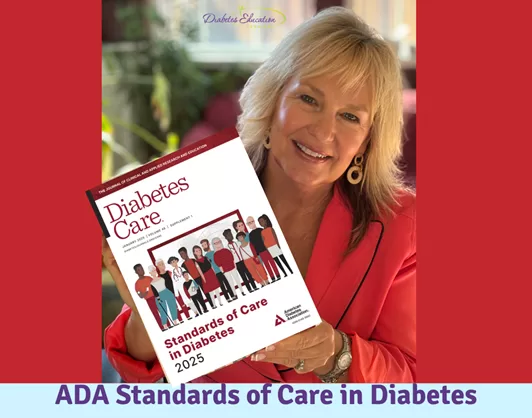
This course, updated annually, is an essential review for anyone in the field of diabetes. Join Coach Beverly as she summarizes the annual updates to the American Diabetes Association’s (ADA) Standard of Medical Care in Diabetes & provides critical teaching points & content for healthcare professionals involved in diabetes care & education.